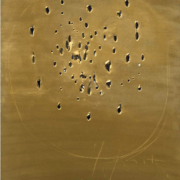Some introductory notes on the development of psychoanalysis in Argentina
Abstract
The birth and evolution of the psychoanalytic movement in Argentina, both on a theoretical and clinical on an institutional level, set up the story of a complex evolutionary process, where you can show how the influences of European psychoanalysis have gone gradually to represent the cultural base from which many authors are parties to develop a methodological framework at the same time articulate and creative.
Thanks to the valuable work of Samuel Arbiser (2003), it is possible to distinguish five evolutionary periods, defined as “pre-institutional”, “pioneer”, “institutional”, “crisis in the 70s”, “current”.
In a century, the psychoanalytic school of Argentina, which was formally established in 1930 with the establishment dell’Associaciòn Argentine Psychoanalytic Association (APA), has seen the emergence of historical figures such as E. Pichon Rivière, J Bleger, D. Liberman, W. Baranger, H. Etchegoyen – just to name a few – which account for their Read more

